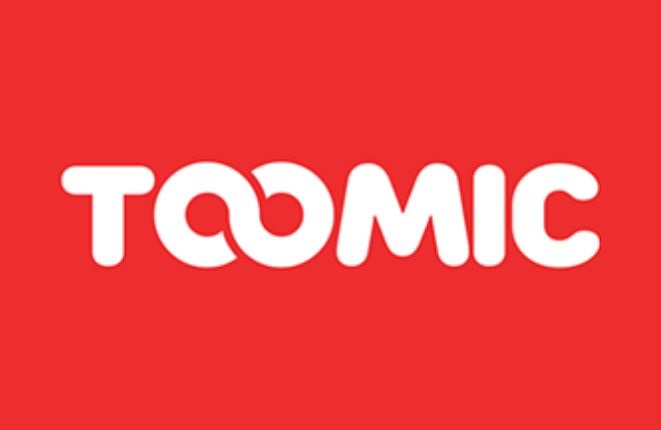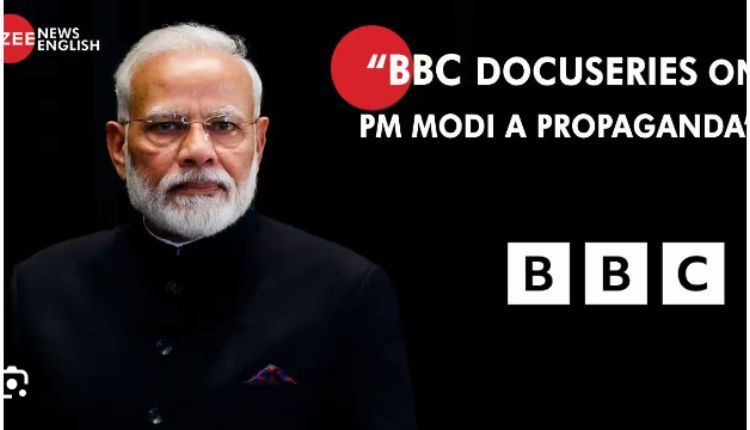A BBC documentary has stoked controversy in India over its depiction of Prime Minister Narendra Modi and his relationship with the country’s Muslim minority. The program revisited allegations that Modi turned a blind eye to violence in Gujarat state in 2002, which left 1,000 people dead, most of them Muslims.
What Is The Documentary About?
The two-part bbc documentary on modi focuses on Modi’s role in India’s 2002 Gujarat riots. During the violence, Hindu mobs attacked Muslims after a train carrying Hindu pilgrims was bombed and a fire burned down Muslim-owned stores and homes. More than 1,000 people, mostly Muslims, were killed. Modi has long faced accusations that he did not do enough to stop the riots. But a special investigation team appointed by India’s Supreme Court in 2012 found no evidence that he was complicit. The BBC says the film took into account “a wide range of voices, witnesses and experts” and that it did not seek to present a particular point of view. It also said it offered the Indian government a right to reply, but it declined. The broadcaster has taken steps to remove online postings of the film from Twitter and YouTube.
But India’s foreign ministry has slammed the documentary as a piece of propaganda based on discredited evidence. The BBC has offered to air the film in India, but it has yet to say if it will do so. The controversy is highlighting the tensions between the world’s second-largest democracy and its Western allies, who have forged close trade ties with Modi’s ruling party.
India is increasingly seen as a major power, and its leader has been seeking to enhance his global stature with high-profile visits and international forays. But critics argue that Modi and his government have a record of neglecting India’s minorities and undermining the country’s democratic institutions.
Human Rights Watch and Amnesty International are organizing a screening of the controversial documentary in Washington, ahead of Modi’s state visit to the White House on June 20. The group says the event will highlight the need for a “full, transparent and independent inquiry” into India’s alleged censorship of the documentary. The event will take place as Indian tax officials have been conducting searches of BBC offices in the country, putting a spotlight on dwindling freedoms in what is considered the world’s largest democracy. CNN’s Bobby Ghosh and Amna Nawaz contributed to this report.
Why Is It Controversial?
The BBC is facing a storm in India after it aired a two-part documentary about Prime Minister Modi that examines his role in the 2002 Gujarat riots. The riots took place after 60 Hindu pilgrims were killed in the town of Godhra, and were blamed on Muslims. The documentary also cites a British government report that held Modi directly responsible for the violence, and calls into question his claims of being an advocate for minority rights. The BBC says that the documentary was based on “rigorous research,” but the Indian government has accused it of bias and lack of objectivity.
The government imposed a ban on the documentary, and used emergency laws to block people from sharing clips online. It even threatened to arrest students who held screenings of the documentary.
It has also filed a defamation suit against the BBC, claiming that it was trying to damage the country’s reputation. The BBC has denied the allegations and is standing by its reporting.
Despite the controversy, the documentary has been well-received in the UK. The Guardian called it a “sobering look at India’s treatment of its minorities.” It raises important questions about the role of a major world power in alleged human rights abuses.
It is important for the international community to hold Modi and his party accountable for past atrocities and current discrimination against minorities. The BBC documentary may be the beginning of a wider conversation about the issue.
India is the largest democracy and the second-largest economy in the world, but it still faces serious issues with press freedom. The raids on the BBC offices are just the latest in a string of violations against journalists and media outlets. Amna Nawaz and Bobby Ghosh discuss what these actions mean for dwindling democratic freedoms in one of the world’s biggest democracies.
What Is The Conclusion?
The documentary examines allegations that Modi failed to intervene effectively in the 2002 anti-Muslim riots in his home state of Gujarat. More than 1,000 people were killed in the violence, and a UK government report at the time held Modi responsible for the failure to stop the riots. The film cites excerpts from the document and features an interview with Jack Straw, the Foreign Secretary at the time. The Indian government has condemned the documentary as biased and accused the BBC of pursuing an anti-government agenda.
Modi and his Bharatiya Janata Party swept to power in 2014 on a wave of Hindu nationalism. They seized control of the central government in India, and now hold a majority in the upper house of parliament. The documentary shows how Modi used the 2002 riots to gain support for his own agenda and how his close ties with right-wing Hindutva organisations like the Rashtriya Swayamsevak Sangh helped him become prime minister.
The film also covers the rising number of lynchings of Muslims in India. It argues that these incidents are part of a campaign to demonise Muslims and impose strict Hindu nationalism in the country. The documentary argues that this is being led by Modi and his BJP, and is supported by the country’s judiciary.
While the documentary may raise some valid points, there are several issues that need to be taken into account. Its most controversial claim is that Modi used the 2002 riots to launch his rise to power, and that this was enabled by his close ties with Hindutva leaders and organisations. This is a serious allegation and must be considered carefully.
The government’s response to the documentary is also troubling. They have banned the film in India and are trying to block it on YouTube, which is against international law. They have also been trying to intimidate students who are holding screenings of the documentary. This is a clear violation of free speech and should be condemned. The BBC has stood by its reporting, saying that it was “rigorously researched according to the highest editorial standards”. It has called on the government to respect freedom of expression and allow the documentary to be shown in India.
What Is The Verdict?
The documentary has revived a dark episode from the prime minister’s past when he was chief minister of Gujarat state during riots in 2002 that killed more than 1,000 Muslims. The government slammed the BBC for a biased “propaganda piece” and blocked sharing of clips on Twitter and YouTube. It also reportedly instructed students in several colleges to stop holding screenings of the film. The move drew criticism from opposition parties and rights groups, who called it an attack on press freedom.
The court said the documentary is “maliciously motivated” and will create “anti-India propaganda.” It was timed to smear India at a time when the country is making a big impression on the world stage, the court said. The petitioner argues that the documentary has defamed the country and hurt the reputation of Modi. It has also caused embarrassment to the ruling Bharatiya Janata Party, senior advocate Harish Salve told the court.
Modi, who won a second term as India’s leader last year, is courting the US and European nations for investments and close diplomatic ties. But his government is accused of discriminating against minorities and pursuing a hardline Hindu nationalist agenda. The BBC’s decision to air the documentary has exacerbated tensions between India and the UK, where it is a major broadcaster.
A spokesman for the BBC denied that it had an ulterior motive and said it stood by its reporting. He said the documentary was rigorously researched, taking into account a wide range of voices and witnesses. He added that it had included responses from people in the BJP, Modi’s own party.
A group of lawmakers from the opposition parties has asked the BBC to rethink its decision to air the documentary. Conservative MP Bob Blackman has accused the broadcaster of conducting a “hatchet job” on Modi, while Labour peer Rami Ranger wrote to the head of the BBC asking him whether the documentary was being made by staff of Pakistani origin. He later apologized for the remarks. Both of them are members of the House of Lords, the upper chamber of the British parliament.
Conclusion:
The BBC documentary on Narendra Modi provides an insightful and comprehensive portrayal of the Indian Prime Minister, capturing various aspects of his life, political journey, and leadership style. Through in-depth interviews with key figures, archival footage, and on-the-ground reporting, the documentary sheds light on Modi’s rise to power and his impact on India’s domestic and international policies.
One of the key takeaways from the documentary is Modi’s ability to connect with the masses through his compelling speeches and social media presence, which has contributed significantly to his popularity. However, it also raises questions about the potential consequences of such a strong personality-driven leadership style in a diverse and complex democracy like India.
Moreover, the documentary delves into controversial topics, such as the 2002 Gujarat riots, which have long been a subject of debate and criticism. While it addresses these issues, it is important to remember that documentaries may have inherent biases or limitations, and viewers should seek multiple sources and perspectives to form a well-rounded understanding of the subject.
In conclusion, the BBC documentary on Narendra Modi offers valuable insights into the life and political career of a prominent world leader. It encourages viewers to critically assess the implications of personality-driven politics and highlights the importance of balanced and comprehensive media coverage to grasp the complexities of modern leadership.
FAQs (Frequently Asked Questions):
- Is the documentary impartial in its portrayal of Narendra Modi?
The impartiality of any documentary can be a subject of debate, and the BBC documentary on Narendra Modi is no exception. While the documentary attempts to present a comprehensive view of Modi’s life and political journey, it is essential to recognize that biases might exist in the selection of content, editing, or even the choice of interviewees. Viewers should be critical consumers of media and consider seeking alternative sources and perspectives to form a more balanced understanding of the subject.
- Does the documentary address the 2002 Gujarat riots and their implications?
Yes, the documentary does address the 2002 Gujarat riots, a significant and controversial event in Narendra Modi’s political career. The documentary provides an overview of the riots and their aftermath, examining their impact on Modi’s image and the state of Gujarat. However, it’s worth noting that due to the complexity and sensitivity of the topic, the documentary might not cover all aspects exhaustively. For a more in-depth understanding, viewers are encouraged to seek additional resources and historical context.

